How Five-Star Hotels and
Michelin-Starred Restaurants Commit to Sustainability – Chef and Culinary Director Richard Ekkebus Of Amber, Landmark Mandarin Oriental,
Hong Kong, Weighs In.
Chef Richard Ekkebus has championed sustainability in his culinary approach since Amber’s inception, over 20 years ago.
12 September 2024
Share this exclusive content from Saladplate
Sustainability has been a popular buzzword in the F&B industry for decades but it takes real commitment for a restaurant to bring this to fruition. When Amber opened its doors in 2005, it was lauded for its fine dining, French cuisine, headed up by Dutch-born chef Richard Ekkebus. Right from the start, Ekkebus made it clear that sustainability would be an important element in the restaurant’s ventures. “At the pre-opening stage of the hotel and Amber 20 years ago, I wanted to establish a clear waste prevention and segregation system,” explains Ekkebus.
“I consider waste prevention to be more important than waste management, especially in a city such as Hong Kong where recycling can be difficult and unsatisfactory.”
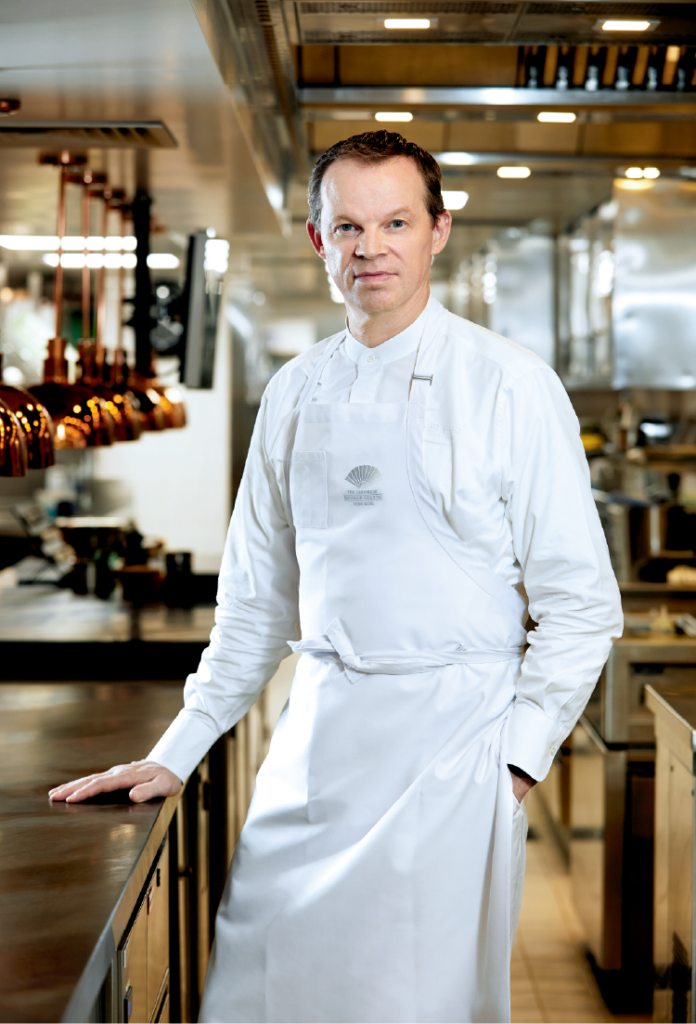
Photo Credit:Amber Resaurant
In 2019, the restaurant closed for four months and when it reopened, sustainability took centre stage. At that time, Ekkebus revamped the menu, adding 50 new dishes, completely removing dairy, and cutting down on sugar and salt. Dairy was replaced with soy and nut milk, while fermentation and seaweed replaced salt, and agave, maple and honey, replaced processed sugar. By doing this, Amber significantly reduced its carbon footprint of milk production, transportation and storage. It has also helped shift the animal protein to plant-based ratio, which is now kept at a constant 35:65.
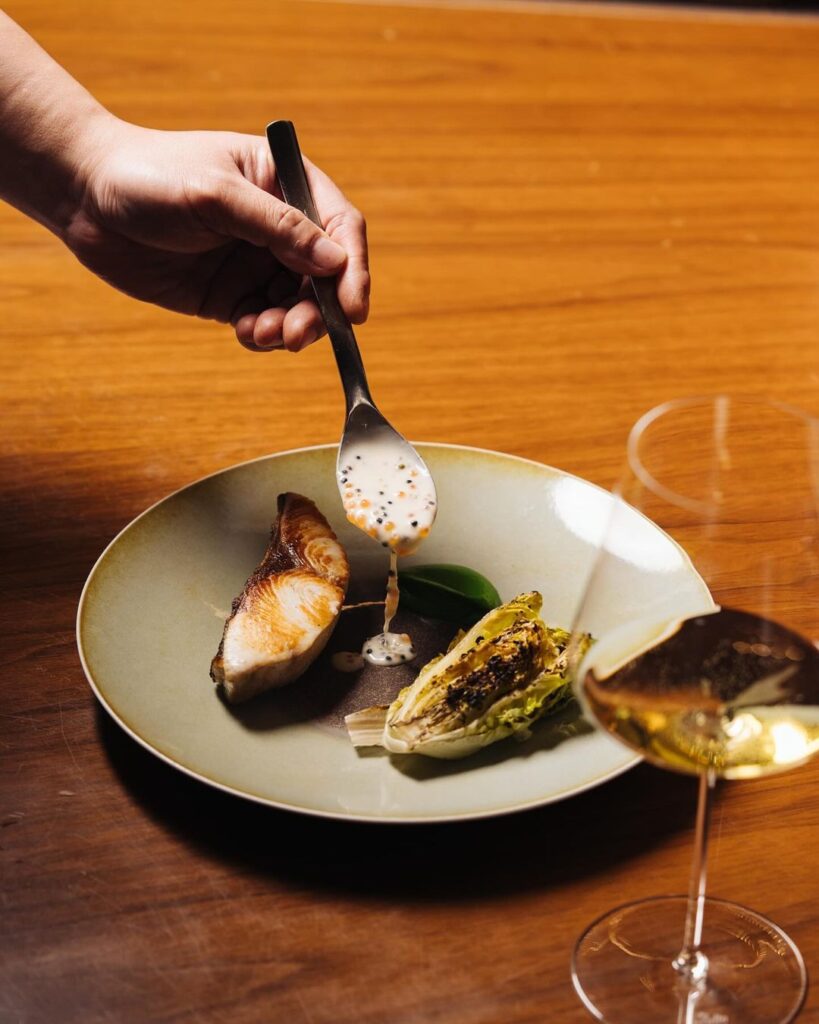
Ekkebus helped shift the animal protein to plant-based ratio at Amber, which is now kept at a constant 35:65 | Photo credit: Richard Ekkebus via Instagram
“At the heart of my culinary philosophy lies a profound respect for the environment and a deep understanding of the interplay between food, sustainability, and responsibility,” says Ekkebus. “It all started with my upbringing. My mom was very aware of these things; she would always buy fruit and vegetables directly from farmers, and our fish came straight from the fishermen.” In much the same way, Amber works predominantly with organic farms in Hong Kong’s New Territories including fruit, vegetables, pigs and poultry, for access to seasonal fresh food with a smaller carbon price tag.
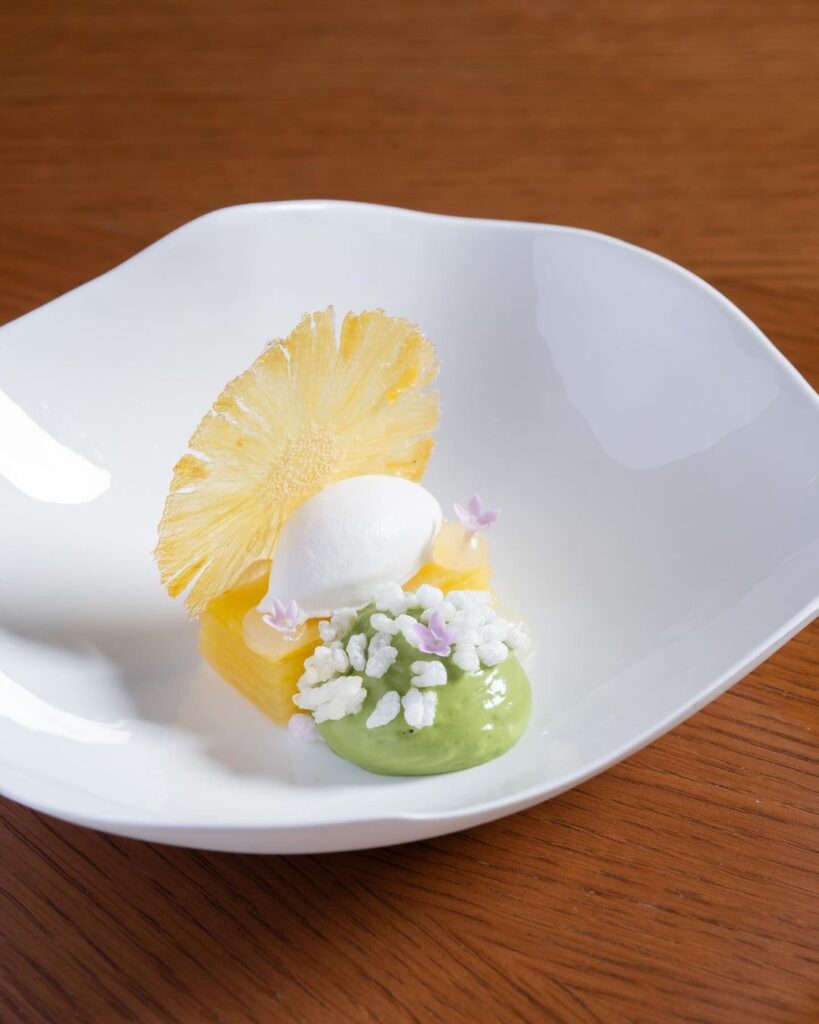
Photo credit: Richard Ekkebus via Instagram
It also helps the local economy and establishes a strong food network that protects Hong Kong’s food heritage. Where they cannot source locally, the restaurant focuses on regional sourcing, working with organic farms in China, such as in Yunnan for organic eggs, as well as Taiwan and Kyushu. Commodities such as chocolate, vanilla and coffee are sourced ethically, and certified by the Rainforest Alliance, Fair Trade and others.
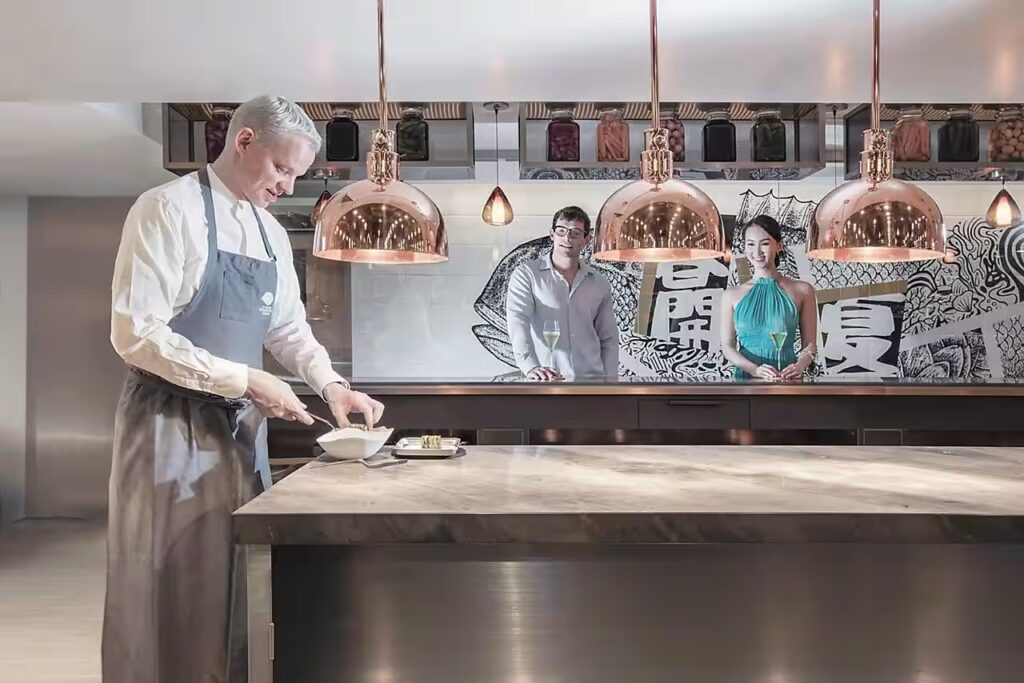
Photo credit: Mandarin Oriental
Other ways the restaurant sources responsibly is to get their seafood through suppliers who use sustainable harvesting techniques, such as line fishing, hand diving, and other methods with no negative impact on the environment. Any species that is vulnerable to overfishing does not appear on their menus, which utilise resources like the Australian Seafood Guide, Good Fish Guide by the Marine Conservation Society for European Seafood, and the WWF Seafood Guide for local and regional sourcing. Amber is also a member of the Hong Kong’s Sustainable Seafood Coalition. For the meat that the restaurant does use, sourcing is done with farms where animals are ethically raised, antibiotic- and growth hormone-free, and who most importantly share Ekkebus’ values about sustainability.
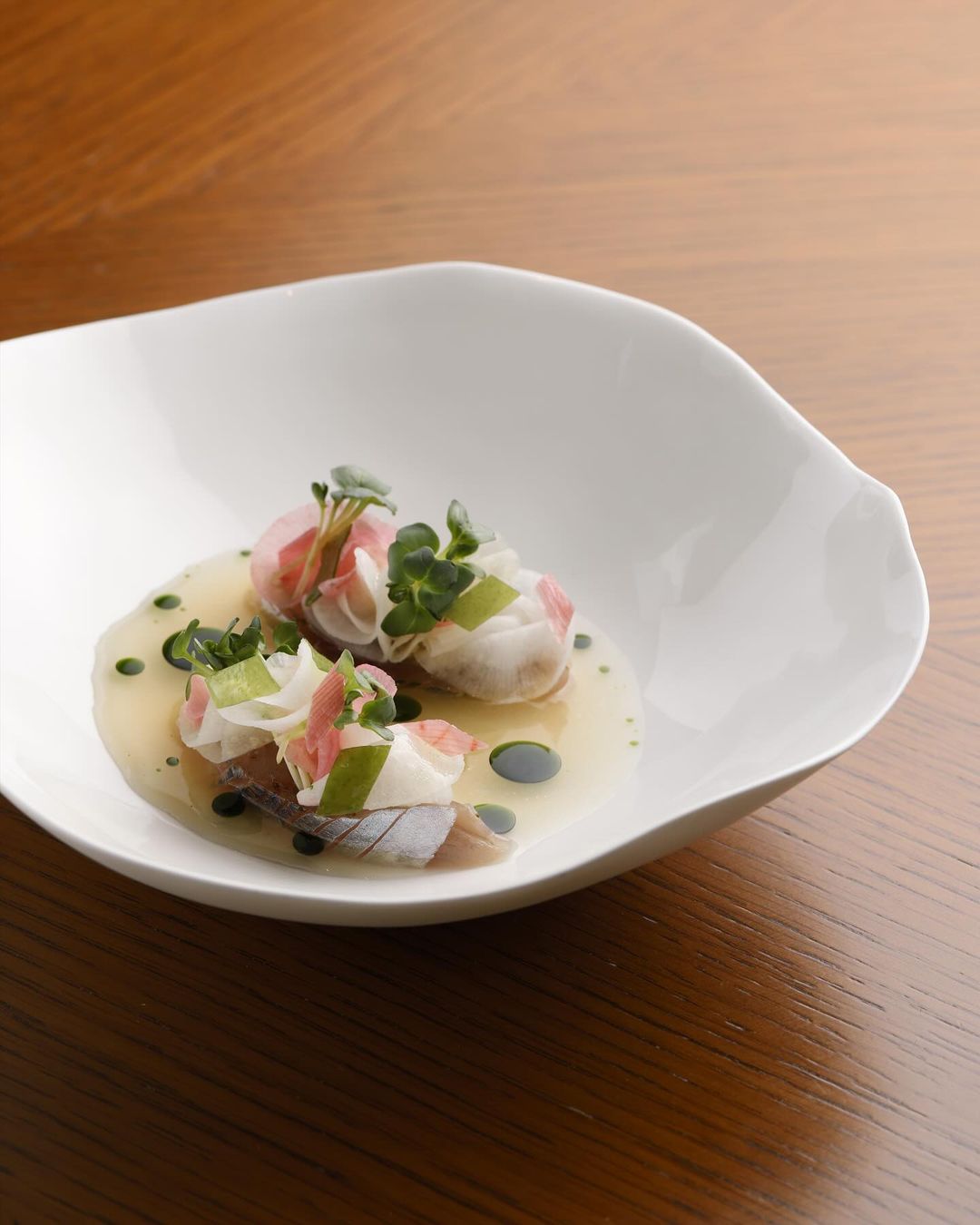
Any species that is vulnerable to overfishing does not appear on Amber’s menus | Photo credit: Richard Ekkebus via Instagram
Monitoring and understanding where they can reduce waste in their daily operations has been a big success for Amber. “The anaerobic waste digester in the hotel’s kitchens is a key initiative,” says Ekkebus. “We have been so successful that last year our waste diversion was 37.7% and in 2024 when we further developed solutions for our waste streams, our current YTD is at a 45.10% waste diversion rate.” He notes that introducing circular practices, where vegetable peelings, coffee grounds and eggshells are returned to local farms to enrich their soil, has had a big impact on their improvement.

Photo credit: Mandarin Oriental
Ekkebus’ commitment to sustainability has driven change around him. “Policies initially piloted at our hotel, have over the past years become Mandarin Oriental’s global policies,” he notes. “And our desire for change has further influenced Hongkong Land and even our conglomerate Jardine Matheson Group, putting a significant focus and shift in sustainability efforts in the past years to operate more sustainably.” He is part of a workgroup at Jardine Matheson that shares best practices and ideas through the different business units.
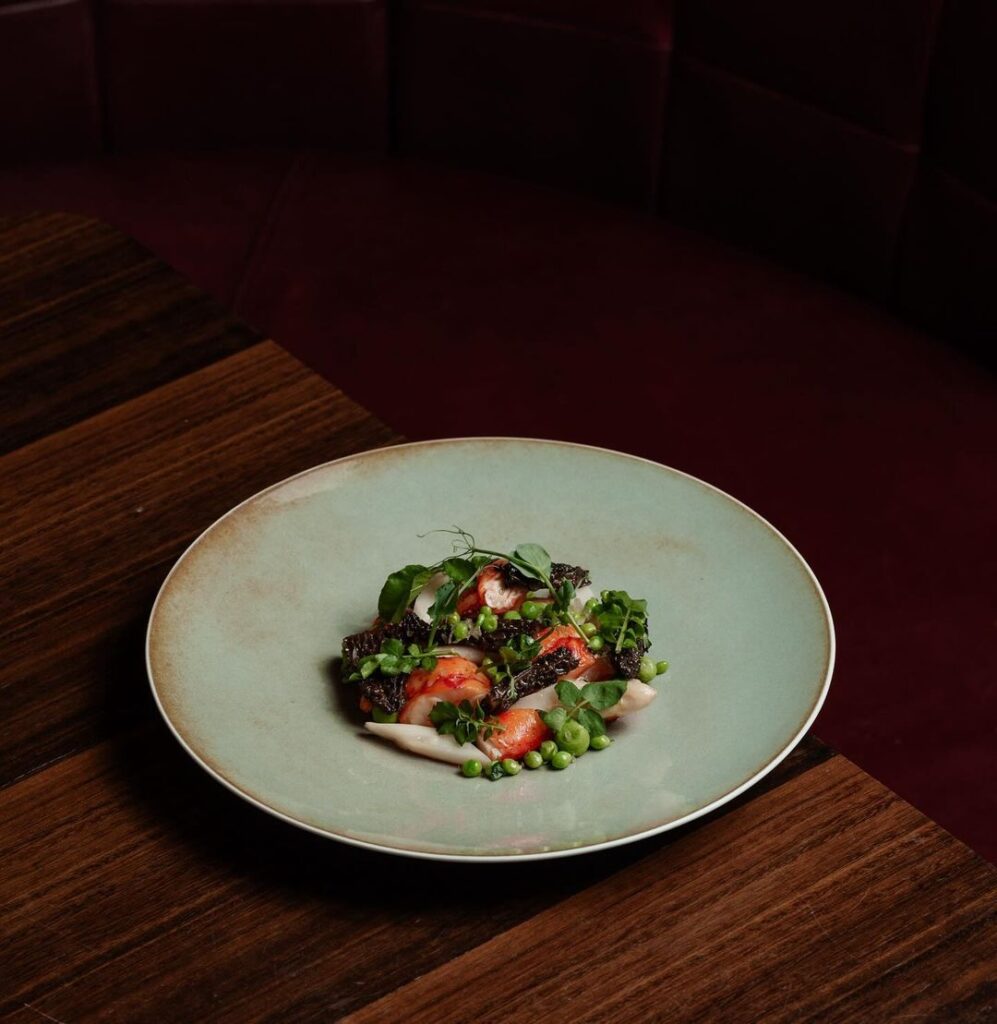
Photo credit:Photo credit: Richard Ekkebus via Instagram
In his role, Ekkebus continues to research the most ethical and sustainable ingredients while continuing to minimise the restaurant’s carbon footprint and the pressure on natural resources. “My years of experience in implementing and further improving on our sustainability efforts have shown that it is better to drive an imperfect effort with the entire team, than manage perfect initiatives through a few team members. The key driver is training, also a full buy-in of an entire team, where we all work towards the same goal.” After 20 years at the helm, it seems likely the chef will be doing at least another 20 more.
Author: Karen Fong
Karen Fong is a Singapore-based writer and editor who has previously spent time in Hong Kong, Shanghai and Canada. She writes parenting, lifestyle and travel content and has worked with publications including The Singapore Women’s Weekly, DestinAsian, Travel+Leisure Southeast Asia and Prestige Hong Kong.



